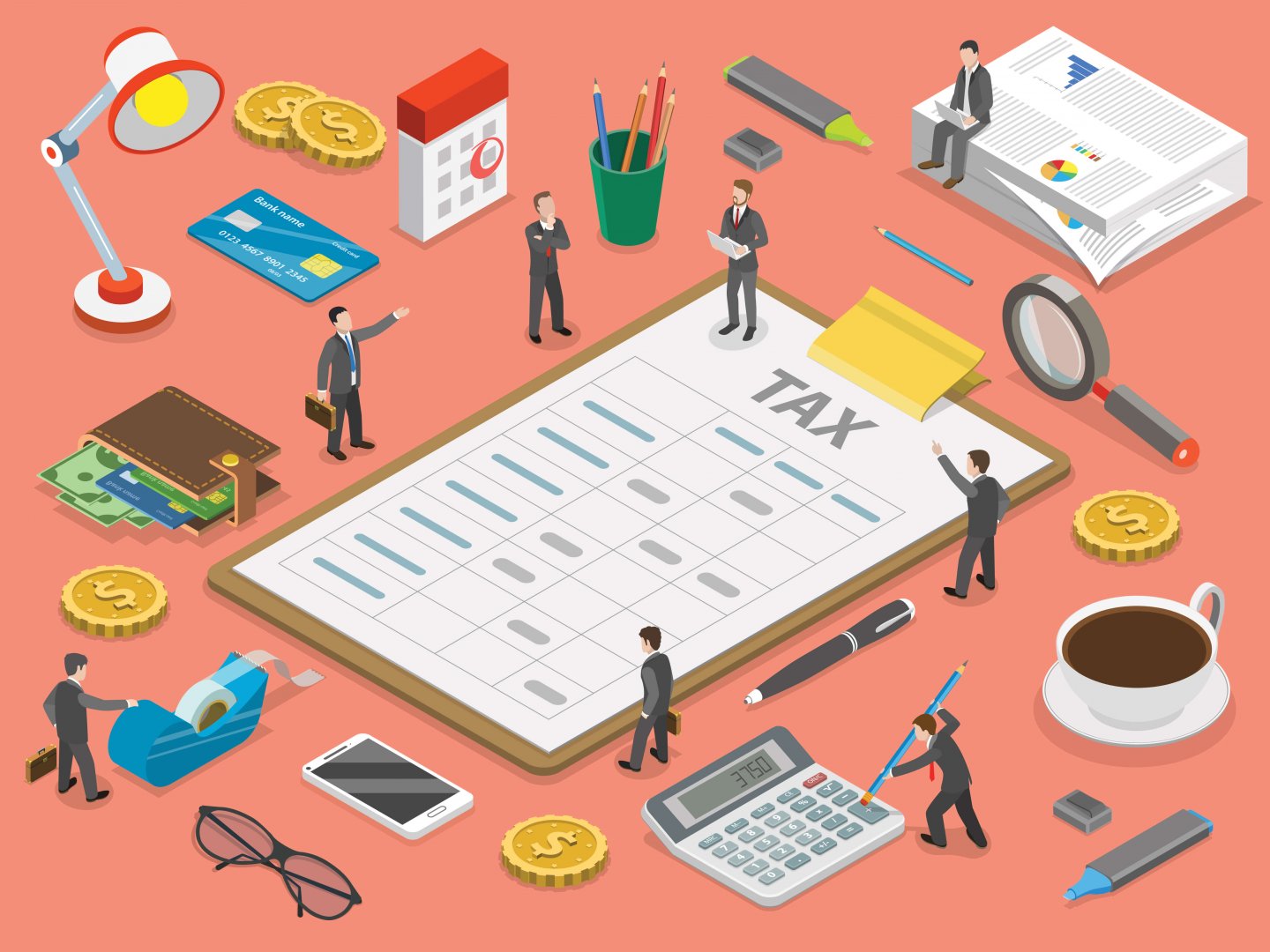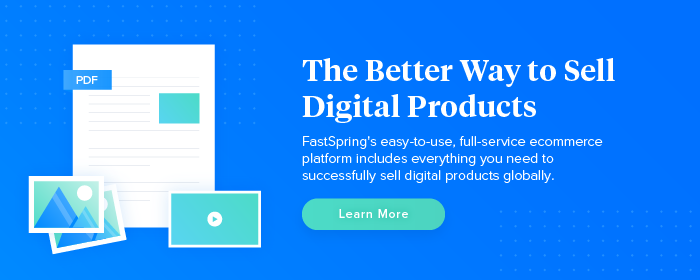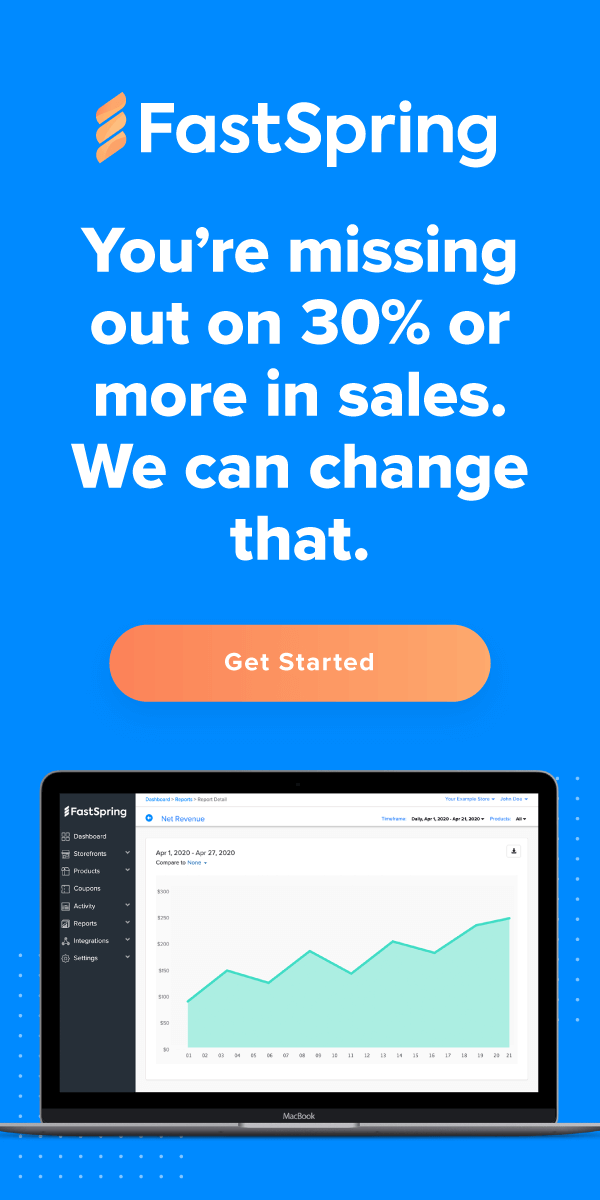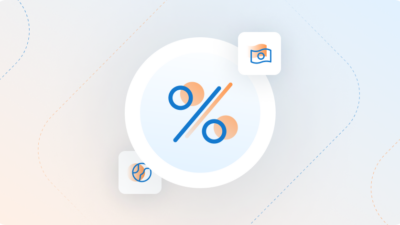Struggling to keep up with digital taxes in the global marketplace? You’re not alone. In the U.S., states were initially slow to adapt to digital download taxation, then suddenly enacted a wave of new rules. Venture outside of the U.S. and you have even more complicated rulings around the taxation of digital products. For example, countries under the European Union will apply varying amounts of the Value Added Tax (VAT) on all imported digital goods and services, in the name of fairness to EU sellers.
It’s a lot to absorb. And SaaS sellers must get it right or face penalties from both their home country and the countries they do business abroad in. Failure to register for VAT, or to apply it correctly, can result in thousands of dollars in fines and even lead to your digital product being banned from selling in certain countries.
Here’s a look at how to comply with tax laws and preserve the reputation of your SaaS company when selling digital products online.
What counts as a digital good or digital product?
For the purpose of this blog post, we’re going to define digital goods as intangible or non-physical goods that exist in electronic format. Some examples include:
- Downloaded software (photo editors, DJ software, etc.)
- Digital assets (ebooks, image files, audio clips/audio files, movies or digital video)
- Web applications/Software as a Service (SaaS)
One of the best things about digital products is that due to their digital nature, they can easily be reproduced and resold without requiring businesses to navigate complex manufacturing logistics. Additionally, because most of these digital goods exist digitally, customers can easily access the software or service they paid for quickly, without having to wait for the item to be physically shipped and delivered.
Understanding Taxation Within the United States
States in the U.S. have a mishmash of digital tax laws. North Dakota and Washington D.C. don’t currently tax digital downloads. While Alaska, Delaware, Montana, New Hampshire, and Oregon don’t have retail sales tax at all.
Recognizing the increasing prominence of digital goods sold online, many states like Alabama, Arizona, Indiana, Louisiana, Maine, New Mexico, Texas, Utah, and West Virginia decided to cover digital downloads without modifying their existing tax statutes or by simply expanding their definitions of “tangible personal property” to include digital products.
Numerous other states have enacted specific legislation, defining digital downloads various ways but always subjecting them to taxation including Colorado, Connecticut, Idaho, Kentucky, Nebraska, New Jersey, South Dakota, Tennessee, Vermont, Washington, and Wisconsin.
But what digital businesses need to recognize most is that the laws surrounding the sale of digital goods will continue to change. Just take a look at the recent Wayfair State Tax Ruling. The Supreme Court ruled that internet retailers can be required to collect sales taxes in states they do business in despite not having a physical brick-and-mortar store. Combined with the fact that tax rates will vary from 1% to 7%, keeping track of the “digital products space” can be tricky.
But if you think that you can afford to ignore taxes surrounding the sale of digital goods, think again. The U.S. federal government is also paying special attention to digital taxes and may treat the sale of digital products as a taxable event in the future. In 2011, the Internal Revenue Service (IRS) created the position of Director of Transfer Pricing to investigate nationwide prices and taxation of SaaS products.
Taxation in the European Union
The E.U. established the VAT, which is applied to all imported goods and services, to encourage its citizens to prefer E.U. businesses. Digital products are broadly defined in the VAT, meaning if you sell to E.U. citizens, it almost certainly applies to you.
VAT rates vary among E.U. countries from 15 to 27% – something to keep in mind when pricing your SaaS for E.U. buyers. If you don’t account for the taxes, your digital product is going to look pricey next to E.U. competitors.
Like selling to various states within the U.S., selling to various countries in the E.U is challenging because of the variety in tax rates and how they are applied. A few years ago, some SaaS companies tried to sidestep the whole tax issue by setting up small subsidiaries in E.U. countries. Don’t try this now; the VAT has been modified to apply to all sellers regardless of location.
Doing it Right
Obviously, it’s difficult to ensure your digital business is fully complying with local and international tax laws. That’s why experts suggest partnering with a digital commerce platform – a company that specializes in worldwide financial transactions.
An ecommerce platform like FastSpring stays at the cutting edge of tax codes and international law. This allows you to focus on developing and selling your service, while FastSpring handles transaction-level information like taxes.
Ready to see how FastSpring can revolutionize your back office? Click here to request your free demo today!
![[Customer Story] Why TestDome Considers FastSpring a Real Partner](https://fastspring.com/wp-content/themes/fastspring-bamboo/images/promotional/2023/FastSpring-TestDome-blog-thumbnail.jpg)









